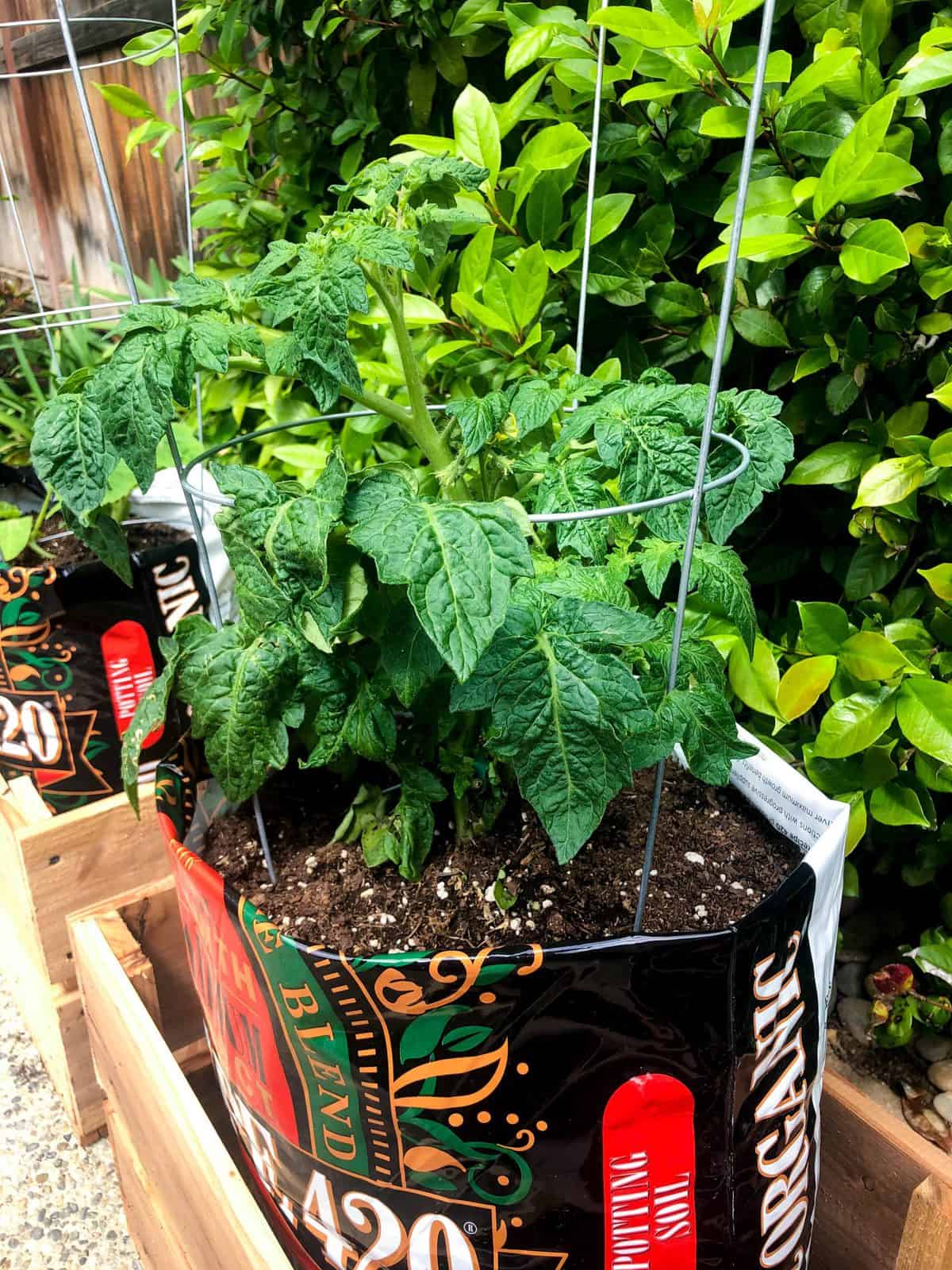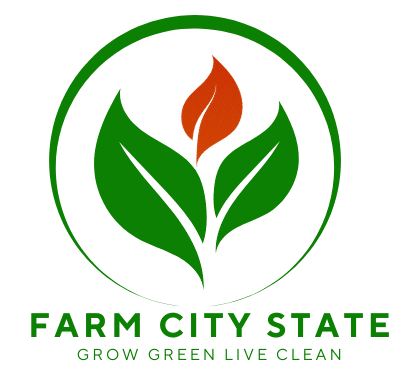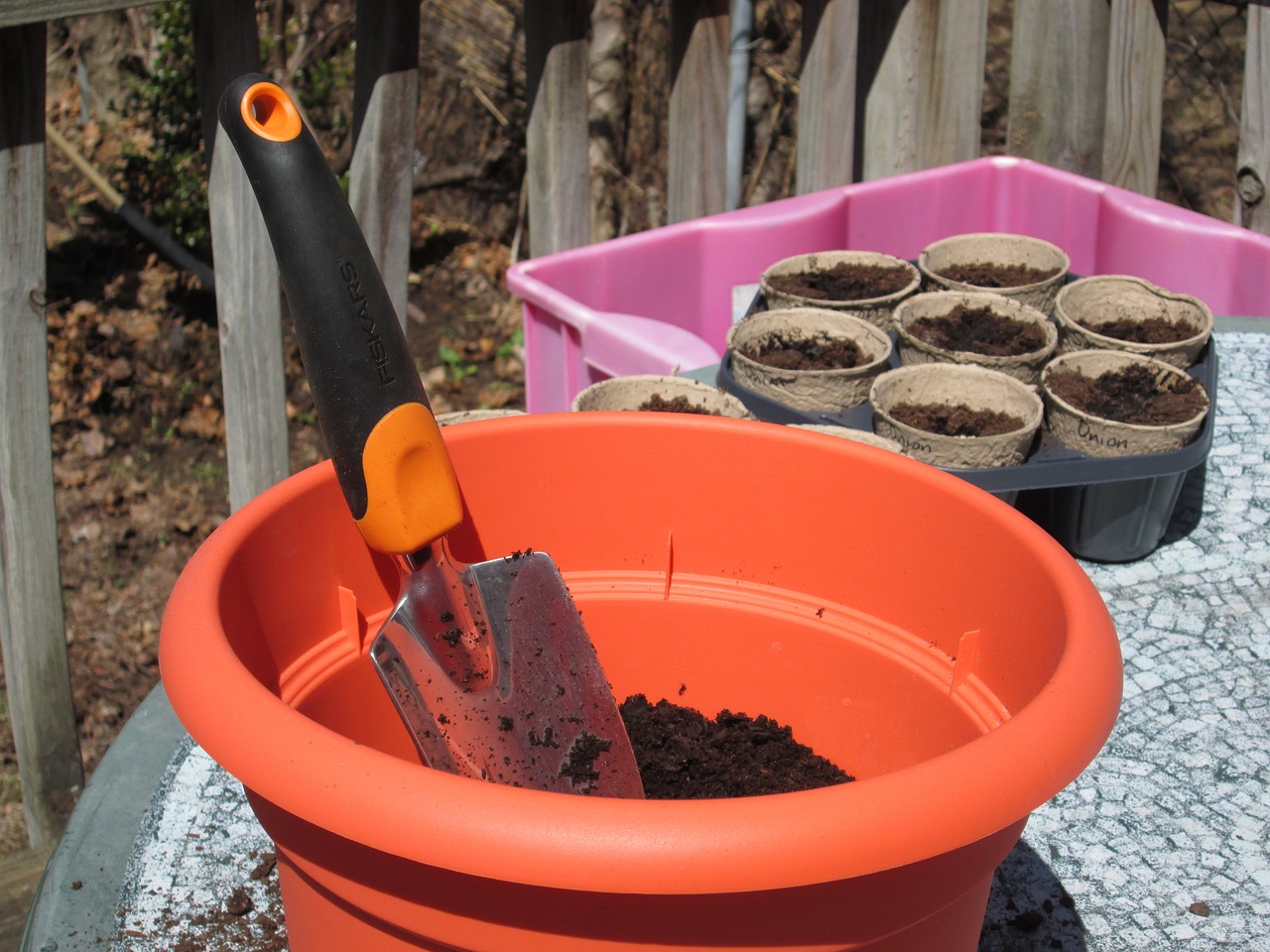As an Amazon Associate, I earn from qualifying purchases.
Use a high-quality potting mix for container gardening. Avoid garden soil, which can be too heavy and compact.
Container gardening offers flexibility and convenience for growing plants in limited spaces. A high-quality potting mix ensures proper drainage, aeration, and nutrient availability. Unlike garden soil, potting mix is lightweight and specifically formulated for containers. It often contains organic matter, peat moss, vermiculite, or perlite.
These components help retain moisture while preventing root rot. Selecting the right soil is crucial for healthy plant growth. Regularly check and refresh the mix to maintain its quality. Container gardening allows you to cultivate herbs, flowers, and vegetables on balconies, patios, or indoors. Enjoy the benefits of fresh produce and vibrant blooms with the right soil choice.
:strip_icc()/pouring-soil-container-garden-a109e9b8-e5fb21a63b7a4f7b836c0bd4eabf1ebd.jpg)
Credit: www.bhg.com
Container Gardening
Container gardening is great for small spaces. It lets you grow plants on balconies and patios. You can control the soil quality easily. This method reduces the risk of soil-borne diseases. Moving plants around is simple. You can position them for optimal sunlight. It also prevents weeds from taking over. Watering is more manageable in containers. This type of gardening is ideal for beginners.
Containers need frequent watering. They dry out faster than ground soil. You must choose the right size pot. Small pots restrict root growth. Nutrient levels can drop quickly. Regular fertilizing is necessary. Temperature changes affect containers more. They heat up and cool down rapidly. Plant roots can become root-bound. Regular repotting helps prevent this.
Credit: earthbox.com
Essential Soil Components
Organic matter is crucial for plant growth. It improves soil structure and water retention. Compost, peat moss, and aged manure are good sources. These materials provide essential nutrients. They also support beneficial microbes. Organic matter helps roots grow strong.
Mineral content affects plant health. Sand, silt, and clay are key minerals. Sand improves drainage. Silt retains nutrients. Clay holds water well. A balanced mix of these minerals is ideal. Proper mineral content ensures healthy plants.
Choosing The Right Soil Mix
Commercial soil mixes are easy to use. They often contain the right balance of nutrients. Many mixes have a combination of peat moss, compost, and perlite. These ingredients help with drainage and aeration. Some commercial mixes also include fertilizers. This means you do not need to add extra nutrients. Always check the label for the best choice for your plants.
DIY soil mixes can save money. You can mix peat moss, compost, and vermiculite at home. Adding perlite improves drainage. Coconut coir can replace peat moss for a more sustainable option. Mixing in a bit of sand can help with drainage, too. Always make sure your mix is light and fluffy. This helps roots grow easily.
Best Soil For Different Plants
Vegetables need well-draining soil. A mix of peat moss, compost, and vermiculite works best. This mix holds moisture and nutrients. It also allows air to reach roots. Avoid heavy garden soil. It compacts easily in containers.
Herbs prefer light and airy soil. A mix of coconut coir, perlite, and compost is ideal. It ensures good drainage. It also keeps the roots healthy. Overwatering can harm herbs. So, choose soil that dries out quickly.
Flowers thrive in rich, organic soil. Use a mix of potting soil, compost, and perlite. This mix provides nutrients and good drainage. Flowers need a balance of water and air. Avoid using garden soil. It may contain pests and diseases.
Improving Drainage
Selecting the right soil for container gardening is crucial for improving drainage. Use a mix of potting soil, perlite, and compost for optimal results.
Perlite
Perlite is a volcanic glass. It helps soil stay light and airy. This makes water drain quickly. Roots get the air they need. Plants grow stronger and healthier. Perlite is very lightweight. It does not compact over time. It is perfect for container gardening.
Vermiculite
Vermiculite is a mineral. It helps soil hold water and nutrients. This is great for plants that need more moisture. It also helps with soil aeration. Vermiculite is good for seed starting. It keeps the soil loose. Plants can grow roots more easily.
Maintaining Soil Health
Using organic fertilizers helps plants grow strong. They add nutrients to the soil. This keeps plants healthy. Compost and manure are good choices. Chemical fertilizers work fast. But they can harm the soil over time. Always follow the instructions on the package.
The pH level of soil is important. Most plants like a pH between 6.0 and 7.0. Use a pH test kit to check the soil. If the pH is too low, add lime. If it’s too high, add sulfur. Keeping the right pH helps plants absorb nutrients better.
Common Soil Problems
Poor soil quality can lead to stunted plant growth in container gardening. Common issues include poor drainage, nutrient deficiencies, and compacted soil.
Compaction
Compacted soil prevents roots from growing freely. Water cannot penetrate well in compacted soil. Plants may wilt or die due to lack of water. Aerate the soil to fix compaction problems. Adding organic matter can also help.
Nutrient Deficiency
Soil lacking in nutrients makes plants weak. Leaves may turn yellow or pale. Growth slows down significantly. Use fertilizers to add essential nutrients. Regularly check soil health for balanced growth. Organic compost is a great option for enriching soil.

Credit: californiagrown.org
Tips For Long-term Success
Check your soil often. Look for changes in moisture and color. Healthy soil is key for plant growth. Water your plants regularly. Do not let the soil dry out.
Change your soil mix with the seasons. Add compost in spring for nutrients. Use mulch in summer to keep moisture. Adjust watering routines in winter. Protect plants from cold.
Frequently Asked Questions
What Type Of Soil Is Best For Container Gardening?
The best soil for container gardening is a well-draining potting mix. It should be lightweight, rich in organic matter, and retain moisture.
Can I Use Garden Soil In Containers?
Using garden soil in containers is not recommended. It is too dense, can cause poor drainage, and may contain pests.
How Often Should I Replace Container Soil?
Replace container soil at least once a year. This ensures fresh nutrients and prevents soil compaction and disease buildup.
Do I Need To Add Fertilizer To Container Soil?
Yes, adding fertilizer is essential for container gardening. Use a balanced, slow-release fertilizer to provide consistent nutrients for plants.
Conclusion
Choosing the right soil is crucial for container gardening success. Use a well-draining mix for healthy plants. Avoid garden soil; it compacts easily and restricts root growth. Incorporate organic matter to boost nutrients. With the right soil, your container garden will thrive and flourish.
Happy gardening!

